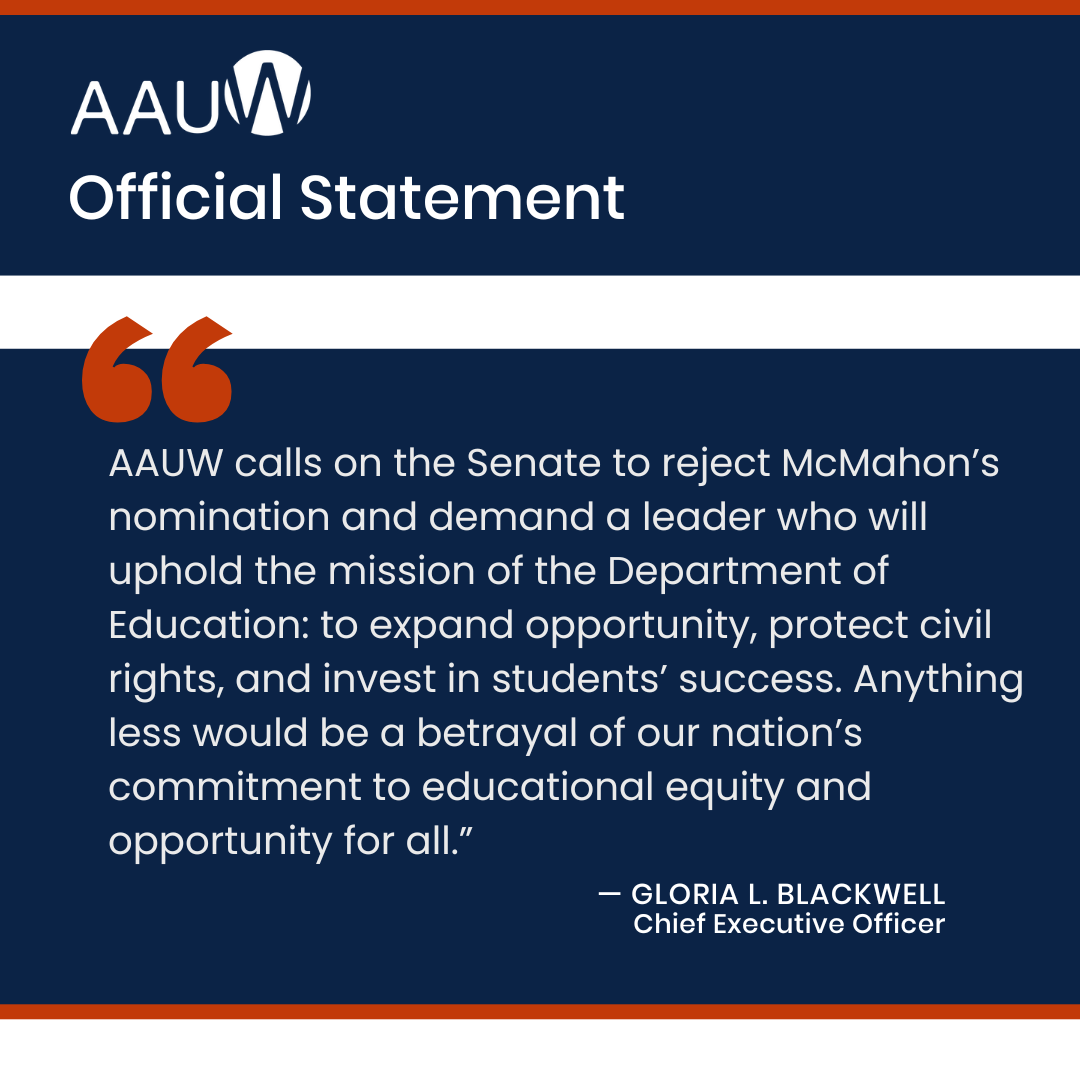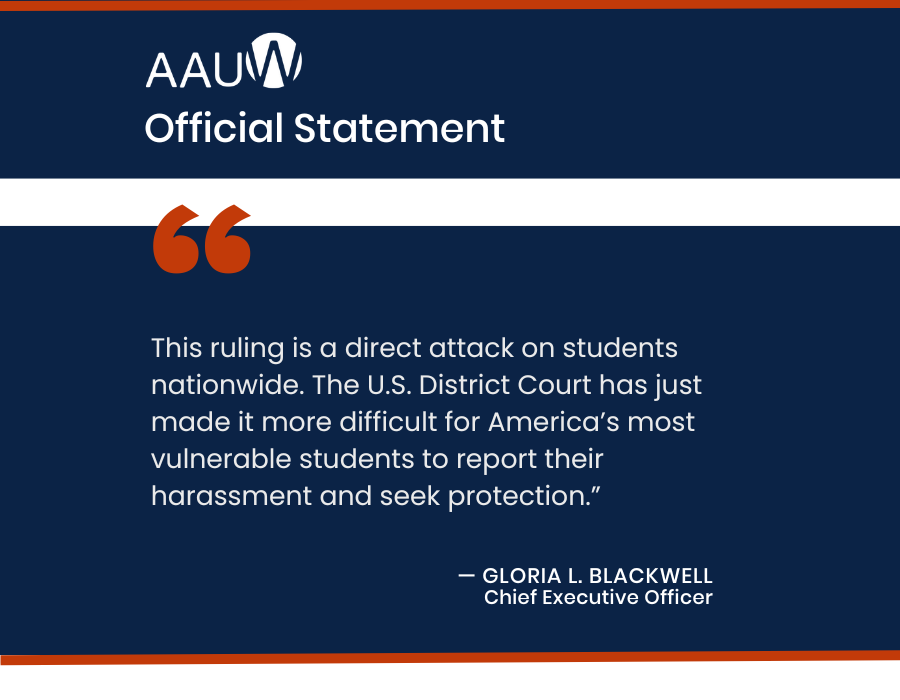AAUW : Empowering Women Since 1881

AAUW Condemns Actions to Undermine the U.S. Department of Education
The administration’s attempt to dismantle the U.S. Department of Education through funding cuts and disorder threatens students’ ability to access and complete higher education. This agenda will have devastating consequences for low-income students, first-generation college-goers, and historically marginalized communities. AAUW will not stand by as education is placed on the chopping block—we call on Congress to reject this attack and protect the future of education in America.

AAUW Strongly Opposes Linda McMahon’s Nomination for U.S. Secretary of Education
AAUW condemns the nomination of Linda McMahon for U.S. Secretary of Education, citing concerns over her lack of experience in public education and commitment to students’ rights. Students deserve a leader who prioritizes equity, accountability, and access to quality education.

AAUW’s Annual Report: A Year of Impact
Discover how AAUW is advancing equity for women and girls nationwide. Our latest Annual Report highlights key achievements, financials, and the impact of our programs over Fiscal Year 2024. Be sure to check out AAUW’s stories of impact.

AAUW Denounces District Court’s Decision to Vacate Title IX Rules
The decision by the U.S. District Court in the Eastern District of Kentucky to vacate the updated Title IX rules makes it easier for schools to dismiss cases, harder to hold perpetrators of sexual harassment and assault accountable, and more difficult for survivors to get the protections they need.
Students deserve better, and AAUW is prepared to fight on their behalf.

What Every Woman Should Know About Social Security
Understanding Social Security is key for women planning their financial future. Join Trisha Mentzer from the Social Security Administration (SSA) to learn about retirement, disability, spousal, and survivor benefits. This session covers eligibility, the application process, and how these programs support women at different life stages, helping you make informed financial decisions.
Securing the Future: A Post-Election Conversation on Women's Economic Security
Join us for an important webinar exploring the path forward for women’s economic security under the next U.S. President and the 119th Congress. Expert panelists include: Heather M. Boushey, Ph.D., 1997–98 AAUW American Fellow, economist and co-founder of the Washington Center for Equitable Growth Jamila K Taylor, Ph.D., President & CEO of the Institute for Women’s Policy Research Gloria L. Blackwell, CEO of American Association of University Women
Helpful How-tos
Start Talking about Pay!

8 Great Job Boards for Diverse Professionals

Tips for Getting Educational Funding

Take Action
Members of AAUW’s Action Network receive urgent email notices and text messages when their advocacy is needed most. With our online Two-Minute Activist tool, it takes just minutes and an internet connection to make your voice heard on issues impacting women and girls!



